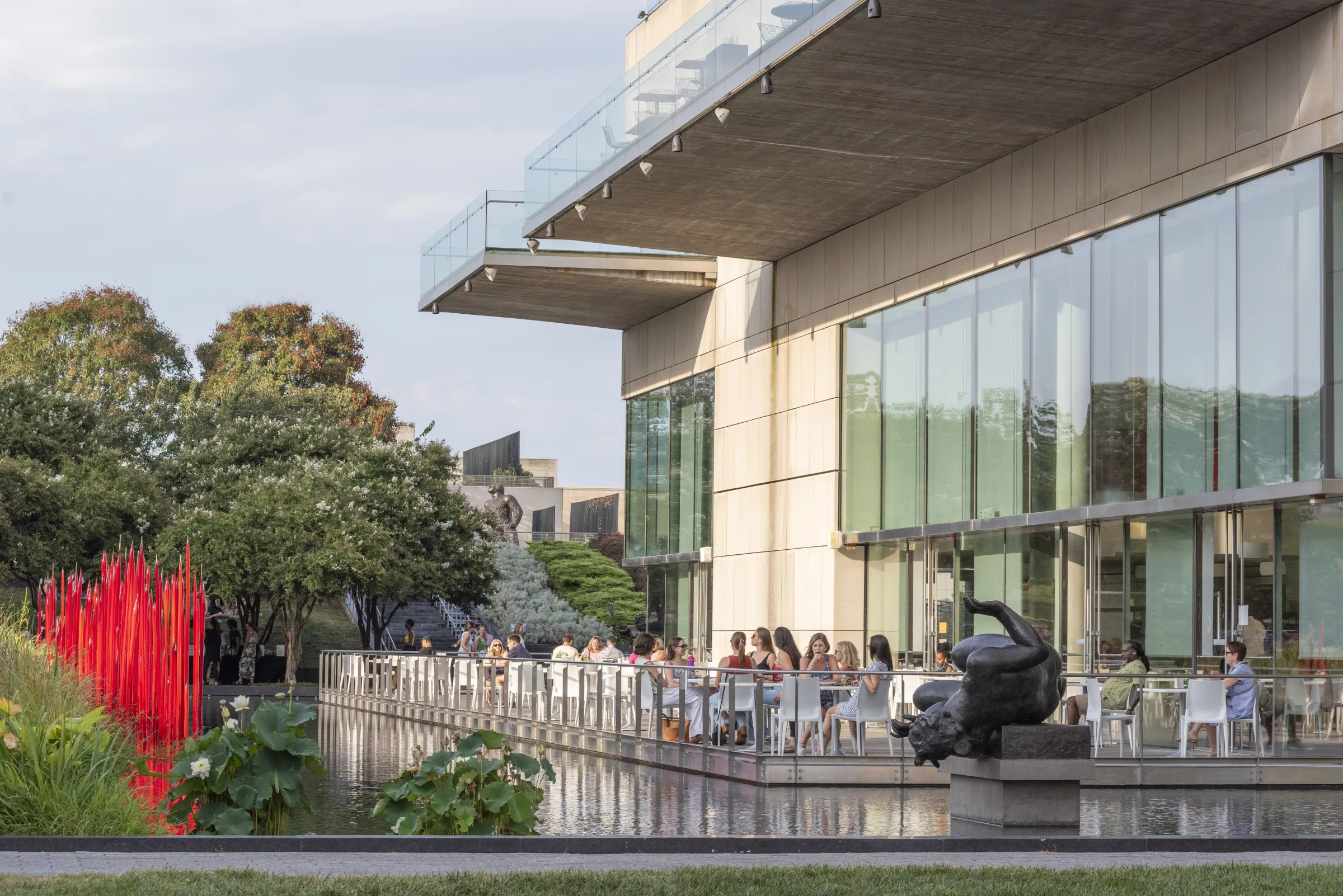“For the first time, I’d ridden up to Pine Ridge to get the tree.”

(Illustration by Phil)
In the shortest day of the year, I sat waiting in the enormous leather chair near the door of my father’s Clarke County law office. This year, my feet could touch the floor.
“Just sit still and be good,” Mrs. Burwell said, typing loudly without raising her head. The office had been a clothing shop in the 1880s. Now, poinsettias filled the bright bay storefront windows. I studied the pressed tin ceiling as afternoon sunlight angled through the wide panes and across the polished floorboards.
“Wasting time, Jimbo?” my father joked as he emerged from his office, a worn leather satchel in his hand.
“He’s been still as a stone,” Mrs. Burwell said, finally looking my way. “I think he wants to go somewhere tomorrow.”
“Think you’re ready?” my father asked, narrowing his eyes at me.
“Oh, yes, Papa!” I blurted, leaping from the chair. “I’ve been practicing with the ropes.”
“There may be a blizzard coming in,” he said as he turned to wish Mrs. Burwell goodnight and I flashed her a quick grin. “We’ll see in the morning.”
A bushel of McIntosh apples sat on the back seat of our white Rambler station wagon, next to a new horse bit. I sat in front and gazed out the window, watching the bare trees drift by as we drove south through the rolling valley farmland, bordered by to the east by the slate-blue curves of the Blue Ridge Mountains.
Once home, I had just time to pitch hay to the cattle, brush down the horses, and wash up before supper. Later, I snuggled under the covers in flannel pajamas and watched the tops of the maples dance slowly before a quarter moon through the window. I couldn’t sleep.
Saturday morning brought pale, streaky clouds of blue and silver over the Allegheny Mountains, but no snow. I wore my lined wool pants down to breakfast because I was going today. I knew I was going.
It was the slowest breakfast of my life. Finally, after we’d cleared the table and stacked the dishes by the sink, my brother and I bolted to the front hall, where my father crouched next to the closet, sorting leather gloves. For the longest time, he did not look up. Then he stood and said, “Come on, boys. Get your riding boots on—double socks.”
I was going!
As we got to the barn, my father said with a sidelong smile, “Ty, you’re on Elvis, and Jimmy—try not to crush Shannon, will you?” He lifted down the tack and sorted it out for us.
Like my father’s leather armchair, the Western saddle was too big for me, but with the stirrups cinched high, I climbed up into it and checked my tie-downs.
My father carried the five-pound felling ax in a leather sheath. He mounted Josie, looked into the western sky, and led us across miles of snow-streaked fields to cross the Shenandoah River over Low Water Bridge. As we climbed into the snow fields of Pine Ridge, the horses slowed and snorted thick steam into the cold air.
“Let’s take a look there,” my father said, turning Josie toward the tree line. There, in a grove of smaller trees, stood a 25-foot-tall long-needle pine, perfectly shaped.
“What do you say, boys?” he said. We both nodded and reigned toward the grove. My father dismounted and unsheathed the heavy ax while I tied the horses to a sapling. In minutes, he’d chopped a large notch in the trunk while Tyree and I threw ropes over mid-height branches and pulled them up the side of the mountain. With a few more strokes on the downhill side, the tall pine crackled and tipped as we ran uphill, pulling on the ropes. It was a perfect drop.
Ty chopped through the trunk, and I tied half-hitches to the lowest branches as darker clouds drifted over the far Alleghenies. “Hurry up, boys,” my father warned. “Snow’s coming in.” We lashed two ropes to our saddle horns and, with a jolt, dislodged the tree from the snow. I almost fell off Shannon as we turned down through the snow fields. Hours later, snow had begun to sweep across the river at Low Water Bridge and I couldn’t feel my toes.
I leaned forward over Shannon to hide my numb face from the wind on the last mile home. As the light faded, my father took my rope and lashed it to Josie’s saddle. Finally, through the dark trees, pale amber lights blinked from the house.
My mother stood in the porch light, eyes gleaming at the magnificent pine. “James, did you cut down that big tree?” she asked with a smile. I just smiled back and curled rope. For the first time, I had ridden up to Pine Ridge to get the tree.
Adorned with white lights and my mother’s finest ornaments, our perfect long-needle pine stood in our front hall, stretching upward through the spiral staircase. Candles lit the mantels and guests filled the house with festive commotion. Our yearly party was underway, and everyone was dressed up, just like the tree.
As I sat with my father by the fire, he gave me one sip of his hot buttered rum before I had to go up to bed.
Tonight, he said, I was old enough.
This article originally appeared in the December 2021 issue.







